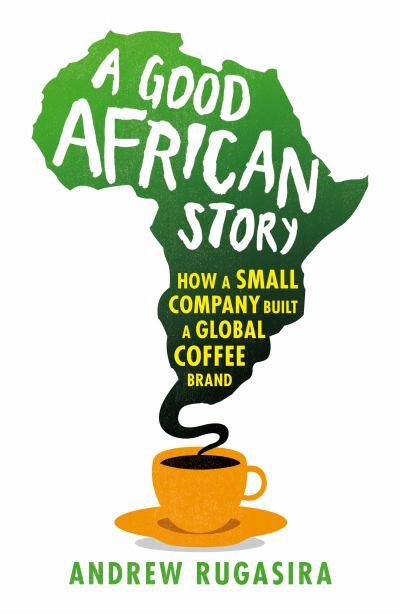
This is a commentary by Samuel Sejjaaka at the launch of the book, ‘A Good African Story’ by Andrew Rugasira on March 28, 2013.
This book tells of an incredible journey for Andrew ‘Mafabi’ Rugasira – not many of us ever get beyond traveling from village to town. In this I mean that not many of us are ready to get out of our comfort zone and seek a more spiritually gratifying way of life. I find Rugasira’s book is very well written and presented. As one who partially lives in the world of academia, I am pleasantly surprised to see such a well researched and professionally presented tome.
In general it is difficult to disagree with one who has worn the shoes – the author has worn the shoes and should know where they pinch. He has walked the talk so he should know. Even if this is his view of events, it is very refreshing and, personal biases aside, a call to action for all of us. Indeed there may be some inaccuracies such as the origin of the name ‘kiboko’ – my mother told me it relates to the way chiefs enforced coffee growing in rural households. Another interesting and anecdotal view is the romantic view we have about the martyrs – were they really martyrs or treasonous subjects of Mwanga? They say that history is written by the victors, so we will never know the version of Kabaka Mwanga. But that history of the martyrs has very interesting parallels with our current polity. There are consequences for an anti-establishment stand and we in the middle class know that more than anybody. There is a sense in which we are cowed and cannot speak out against inequality. That is to be expected because we have mortgages and bills to pay.
My own view and maybe specific disagreement with the author’s engrossment with colonialism is that while we need be cognisant of our history, we cannot, 50 years after independence continue attributing our problems to colonialists. They are a constant in our heritage, which we have to deal with and move on. We can pass blame for the first 30 or 40 years of our nationhood, but that cannot be a perpetual excuse. We are now responsible for our condition. Just look at the panel that has been assembled for the discourse at today’s launch.
The more fundamental problem to our development, or lack thereof, is the issue of how we relate to ourselves and as a result treat each other. Africans are subconsciously consumed by a process of derision for the other self which is represented by our kindred – the kind of self hatred that led to black on black violence in the apartheid era, the kind hatred that leads us to genocide and other atrocities against members of our race. I have failed to find an explanation for this phenomenon, but it may be routed in our long history of subjugation – from slave trade to colonialism, to neo colonialism. Things couldn’t have been this way all the time. Our customs do not bear out the manner in which we as leaders treat our people.
Maybe again the author’s ‘gatekeepers’ theory is an apt explanation of these intra African human relations – if you have the keys to the gate and do not believe that ownership to be legitimate, then the rest must be kept out, more so if they are not from your ethnic grouping. Indeed for us (Africans), there is a paucity of inspiring leadership and therefore governance. We need to be careful here, because leadership is not reducible to democracy. Having regular elections does not make a society democratic. It is the allocative choices that speak more to a democratic order.
Equally intriguing, is the problem of moral hazard – how do you expect public officials who have never even managed a small kiosk to make decisions that are of a meaningful economic nature. Decisions that are not bound my macroeconomic models but are based on a fundamental knowledge of the socioeconomic conditions of our country and the need to provide our own solutions. We are not numbers. We are not ‘a dollar a day’ – we don’t manufacture or have a copyright to dollars. We are not non-savers – we have fowl, cattle and granaries. These never get counted. Therefore, Eurocentric standards cannot define us. But we fail to define ourselves.
A ‘Good African Story’ has several lessons for us to turn Uganda around. I have picked the following.
1. Government support is critical for start up ventures – I disagree with the deputy Governor here. The problem is how do you make your choices of whom is deserving of that support?
2. There is a critical mismatch between finances and our development needs which must be addressed through appropriate venture funds and long term development funding.
3. Rugasira’s story tells us we are punching way below our capacity as a country and continent. We can do much better if we get of our laurels.
Once again thank you for documenting your ‘Good African Story’ and I do hope we can learn from it and make our society better – only Africans can emancipate Africans. The problem is do we know this?
[1] This is a commentary by Samuel Sejjaaka at the launch of the book, ‘A Good African Story’ by Andrew Rugasira on March 28, 2013.
